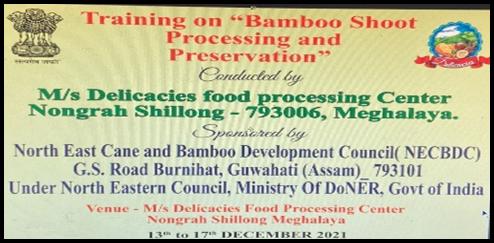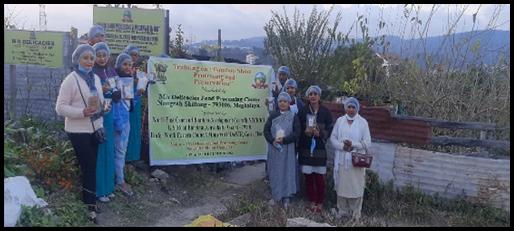Training Supervisors has been designed for all the people in different areas that handle staff and need training. This includes all levels of employees, from supervisors through to entry-level personnel. Training supervisors need this knowledge to enhance their understanding of safety and health and to improve their performance. In many cases, they will need the training to increase their knowledge and acquire the skills they need to impact the workplace.
Supervisors need to be able to motivate staff effectively but also be able to communicate well with them. They should additionally know the ins and outs of the job and cover all departments within the organization. Curators require good Writing and Reading skills, good interpersonal skills and knowledge and rich experience. Most of the training supervisors are experts in their field. Curators must have their feet on the doorstep before other employees know them.
Training Supervisors Online is a one-on-one learning experience, allowing supervisors to train their staff in the manner they wish to, without involving other employees. Supervisors can focus on their specific areas of training and their development. Training Supervisors Online enables them to have an open and ongoing discussion with their staff members, answering questions, providing feedback and suggestions. In addition to online training, they may attend seminars or workshops to continue their education. Some training supervisors decide to continue their education by taking professional development courses. Others take short courses that offer a limited amount of training time.
The training program usually lasts between two and four weeks, depending upon the length of the job description and the level of training needed. Supervisory staff members are given written tasks to complete each week, consisting of reading instruction manuals and conducting one-on-one training with staff members from other departments. Training supervisors will often be expected to perform some kind of leadership role during this time as well. Learning outcomes are usually documented in training documents, which can be stored and shared throughout the organization.
At Ej4, we specialize in creating great user experiences for e-learners. Our learning courses don’t just meet a list of primary learning objectives. Our highly trained experts examine every point of contact between your employees and also their learning opportunities. We ensure there’s value at every interaction, with contextual and engaging information for them to access on-demand and in the flow of work.
Apr 23, 2021 | Business
The Ministry of Ayush (MoA) and the Ministry of Youth Affairs and Sports (MYAS), noting that the International Day of Yoga (IDY) which falls on 21st June is just two months away, have come together in a Joint initiative and are offering a public-focused online Yoga training programme which has started on 21st April 2021. This would be followed up with repeat batches starting on 1st May 2021, 21st May 2021 and 1st June 2021. The course covers the Common Yoga Protocol (CYP) designed for easy learning and is spread over 24 sessions of a maximum one-hour duration each. The two Ministries have timed these courses in line with IDY 2021, which presents an ideal occasion to usher Yoga in, into the thoughts and everyday lives of the public.
The World continues to fight the pandemic valiantly, yet there has been resurgence in the number of cases. There is widespread concern over the pandemic’s impact on people’s physical and mental health. In this exacting phase, Yoga with its multi-faceted benefits is proving to be of help to the public and there is widespread appreciation of the health-promoting aspects of Yoga which go a long way in finding the balance in our day-to-day lives in the changed reality. Consistent practice of Yoga helps to improve health and strengthen natural immunity.
The Common Yoga Protocol (CYP), a specified sequence of Yogasanas of 45 minutes duration lies at the heart of IDY observation. It was developed by some of the most accomplished Yoga gurus of India in 2015. Conceived with the need to organize harmonious mass Yoga demonstrations in the observation of International Day of Yoga (IDY), it comprises the ideal assemblage of Asanas for inducting beginners to Yoga practice. It was designed for easy learning by common people, irrespective of their age and gender, and can be learnt through simple training sessions and online classes.
The Morarji Desai National Institute of Yoga (MDNIY) has designed the instant course on behalf of the two Ministries. MDNIY is also offering an opportunity to the participants to obtain a “Yoga Volunteer” certificate from the Yoga Certification Board (YCB), the country’s apex body in certification in the field of Yoga, as an upgrade to the instant course. While the course is offered free of cost, there would be a nominal processing fee of Rs 250/- for the certificate. Yoga Volunteer Training Course will have four levels, with an overall duration of 36 hours. The course will begin with the module of the Yoga Appreciation Programme (the first level) which is of 4 days with daily practice of 45 mins and then move to the second level, the CYP- Introduction Programme which will be for 12 days with daily practice of 1.5 hours. Reaching the third level, the CYP- Yoga Sadhana will be for 6 days with daily practice of 1.5 hours. The final level includes a 2-day (6 hours daily) CYP- Self Practice, Assessment & Certification.
The training programme will be streamed on the Social Media platforms of both the Ministries (including the platforms of their different units) on the Youtube and Facebook handles. The Ayush Ministry’s social media handles that stream this course include Facebook: (https://www.facebook.com/moayush/) and Youtube: (https://www.youtube.com/channel/UCqRR2gs-I3zrNcE4so4TpgQ). Additionally, this course will also be made available on the social media handles of Fit India Movement and those of the Ministry of Youth Affairs and Sports.
Both Ministries will collaborate to take the joint IDY- Fit India messaging to the public in a big way, as part of the Joint Campaign and Social Media would be the main vehicle for this. The different Units/ Autonomous Bodies/ Agencies under both the Ministries would be roped into taking this campaign to the public.
In this Joint Campaign, the message “Be with Yoga, Be at Home” is being promoted, considering the backdrop of the pandemic, when all are advised to stay at home to the extent possible. Sports Personalities and Sports Celebrities are expected to support this initiative with messages on how Yoga can be practiced at home during the COVID situation and also how Yoga has helped them in their fitness and sporting activities.
Taking cognizance of the extremity of the current situation, it is necessary to avoid a congregation of people for the promotional activities of IDY-2021. Hence the two Ministries have adopted the digital, virtual and electronic platform to spread the message of IDY this year, and participation by citizens from the safety of their respective homes is encouraged.
Ministry of Ayush and Ministry of Youth Affairs and Sports have invited all stakeholders to take up messaging to the public in the context of the upcoming IDY, by highlighting the role of Yoga and its contribution to public health in these difficult times. Encouraging the people to observe IDY 2021 by doing the Common Yoga Protocol at home with their families on 21 June 2021, would be a notable contribution by all the stake-holders towards the general health and well-being of the public. Active participation in IDY can be an inspiration point and can help in target-setting for the activity of learning Yoga.
MV/SK
(Release ID: 1713439)
Visitor Counter : 35



